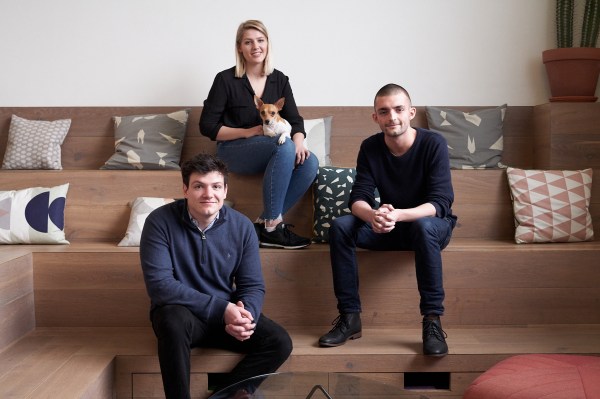Fat Lama, the startup that offers a fully insured peer-to-peer rental marketplace for almost anything, is getting a little fatter. The London-based company has raised $10 million in Series A funding in a round led by Ophelia Brown’s recently outed Blossom Capital, with participation from Niklas Zennström’s Atomico and existing backer Y Combinator.
Aiming to do for rentals what eBay did for buying and selling used items, Fat Lama was conceived in early 2016 after the experience its founders had renovating an office space in London. They found themselves spending almost a third of their budget on what co-founder and CEO Chaz Englander describes as “single-use” items that were difficult to rent, such as power tools, tile-cutters and industrial vacuums.
“The probability was that the majority of those items were lying around unused in the same block we were working in,” he says, “but our only option to hire was to go to a rental shop on the other side of town, during working hours, to pay a premium for commercial hire. That was when we had the first conversations about creating a rental marketplace.”
For Fat Lama to have a chance of succeeding where older rental startups had failed, the team figured out that a number of problems beyond simply matching supply with demand would need to be solved. Traditional rental companies typically require the borrower to leave quite a large cash deposit in case an item is broken, lost or stolen. Likewise, equipment-sharing websites that don’t require a deposit can be perceived as too risky for the lender.
Fat Lama’s solution is to fully insure each item rented for an amount up to $30,000, something Englander tells me took nine months to secure and is a major differentiator from competitors. Borrowers are still liable for the full value of an item if they break or lose it, but the insurance will reimburse the lender if there’s a dispute between the borrower and Fat Lama, or if the borrower simply refuses (or can’t) pay. To further manage this risk, Fat Lama requires users to pass identity checks, in addition to employing risk-profiling technology.
“Put simply, we don’t think it makes sense for people to have to buy the things they only use occasionally. And what we’re seeing, whether it’s environmentally or financially driven, is that globally, people are less and less interested in owning things,” says the Fat Lama CEO. “Fat Lama is connecting people with spare stuff to those that need it. By using a combination of risk-profiling technology and insurance, we’re making it not just possible, but safe and seamless, for anyone to have access to almost any item, potentially within minutes.”
There is a community aspect to Fat Lama, too, which is something Englander is keen to protect even as the company scales. Currently lenders and borrowers hand over and collect items in person, where they often share expertise on how to get the most out of an item.
“The breadth of rental categories obviously means that we have an incredibly broad user base in terms of demographics,” he adds.
One obvious demographic is creative professionals, such as DJs, music producers, filmmakers, photographers and art directors, all of whom have “project-driven, often last-minute demands” for niche equipment. “Many are also sitting on big inventories of gear which they rarely use, from which they’re now generating an income in the thousands,” notes Englander.
Meanwhile, after a successful launch in New York earlier this year, including seeing more than 6,000 items listed on the site (supply in New York is said to be growing more than three times as fast as it originally did in London), Fat Lama is planning to use the new Series A funding to further grow across the pond. As part of this effort, the U.K. startup is hiring U.S. city managers, as well as investing in its product, engineering and operations teams back in London.
